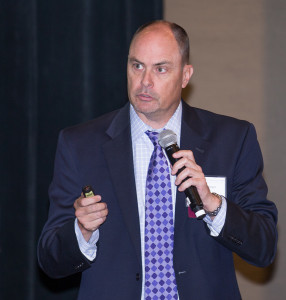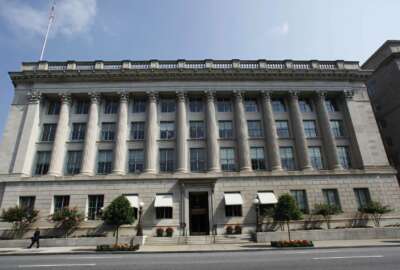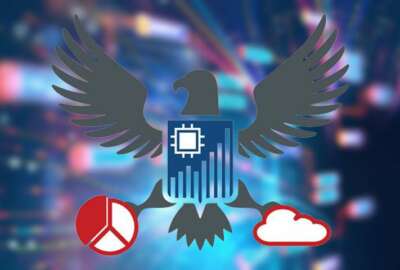Five experts offer IT, acquisition advice to the incoming Biden administration
A panel of federal experts offered opinions and insights about what IT and procurement topics will impact agencies and contractors alike over the next 12...
Let’s face it, predictions are hard. They are rarely accurate, unless you are using some sort of advanced artificial intelligence, supercomputer type of thing.
But that doesn’t stop us from asking experts what they think are the top technology or acquisition issues agencies and contractors should be paying attention to in 2021.
Our panel of experts highlighted the need for agencies to continue to build on the successes of the pandemic around moving toward zero trust architectures and integrating identity and access management into more systems. At same time, these changes can’t be done in silos or without ensuring the workforce is prepared for the future.
The panelists were:
- Jose Arrieta, former CIO at the Department of Health and Human Services
- Mike Hettinger, president of Hettinger Strategy Group
- Malcolm Jackson, former CIO at the Environmental Protection Agency and currently the principal director for CIO Advisory Services at Accenture Federal Services
- Suzette Kent, former federal CIO
- Essye Miller, former Defense Department deputy CIO
Here are the insights from the panel on the top IT and acquisition issues in 2020.
What is one piece of advice you would give to the incoming Biden administration technology leaders?

Kent: Support agencies that have transformations in process and keep the momentum!
Help tell the citizen impact stories and ensure that Congress understands the areas where their support for changes to policy, changes to procurement and investments in transformation will greatly benefit the American public.
Arrieta: I suspect civic engagement, contact tracing in federal buildings and the continued and more rapid use of artificial intelligence capabilities will be part of the Biden administration’s policies. I also believe that a focus on new competitive approaches to acquiring cloud and ensuring cloud security will be prominent aspects of his four first years. Finally, I believe the Biden administration will create a robust discussion around the role and separation of ingestion, parsing, curation and sharing capabilities from true artificial intelligence solutions that are supervised and unsupervised machine learning and other forms of artificial intelligence. That said, I think civic engagement solutions that are secure and ensure privacy are a must to ensure that a proper dynamic demand signal is established for therapeutics and vaccine delivery in the United States. Creating these tools to collect and share data is a must to protect human lives in the United States at this moment in time.
Miller: Look at procurement rules and the way we execute IT funding to ensure a continued focus on modernization/transformation. This includes establishing boundaries or rule sets to avoid software development efforts that lead to duplicative capability or building new systems when we should be delivering capability in an iterative or agile manner. While doing this, we can’t forget to invest in the workforce. Recruiting/retention and re-tooling/retraining are critical to maintaining a current, relevant technical workforce.
Hettinger: The beauty of federal IT is that it’s bipartisan and regardless of whether there’s been a Republican or Democrat in the White House, we are all rowing in the same direction. The Trump administration policies like Cloud Smart and the Federal Data Strategy were built from foundational IT policies that the Obama administration had put in place. My hope for the Biden administration is they will build on the Trump policies where it makes sense and forge their own path where it doesn’t. I’d love to see the new administration focus on a comprehensive plan to invest in IT modernization to support a post-pandemic remote workforce. This needs to go far beyond the Technology Modernization Fund (TMF) and some of the ideas that were included in the CARES Act, like enhanced VPN. Agencies need to step back and plan for the reality that remote work will be the norm for the foreseeable future and that even after the vaccine is deployed and employees start to return to work, work will be different than it was pre-pandemic. Focusing on the long-term technology needs of employees and the citizens they serve in areas like digital services, cloud computing and cybersecurity, and making the right investments to support them should be at the top of the priority list. And I hope they’ll work with Congress to ensure agencies have the funding they need to make these investments.
Jackson: I would tell them what I learned from my own experience: You don’t have as much time as you think to get your priority projects completed. The incoming administration will likely work to identify the top three-to-five things they want to get done. I would recommend that they let data drive their decisions and the path forward. They should focus on building an agile IT organization (innovate, scale and repeat) and establishing a digital foundation that concentrates on the use of platforms, cloud, cyber resilience tools, and digital strategies while prioritizing customer experience. As the country moves to a paperless society, the government should be prepared and help lead that effort. To become a digital organization, the government must modernize their legacy applications and unleash its data.
What technology or procurement concept will have a breakout year in 2021?

Jackson: I think it’s a combination of technologies working together. Most federal CIOs have made the initial pivot to the newer, more agile technologies. Agencies shifting to cloud, analytics and the automation space in isolation don’t take full advantage of the potential of these tools. The federal government is at a technology inflection point and CIOs need to radically optimize the use of these tools in ways that help transform the mission of their agencies. It’s not one technology. It’s taking more of a holistic look at your technology ecosystem, being innovative, trying things and if they succeed, build upon them; if they fail, fail forward and learn from the experience.
Miller: Two things–continued evolution, and adoption of zero trust architectures to support identity management. The use of artificial intelligence to support cyber security and, possibly, continuous authorization.
Kent: Advancement as a government enterprise brings bigger impact that single agency progress alone:
- Continued progress on enterprise cybersecurity actions (data quality, supply chain, workforce)
- Digital service delivery with advancements to identity management will streamline the experience for American public across government.
- Data and automation–Further progress on the federal data strategy will not only improve mission and service quality, efficiency and transparency–it solidifies the foundation needed to leverage advanced automation, especially in processes that are shared across agencies or are common.

Hettinger: IT security is the trend to watch in 2021. Zero trust, working together with TIC 3.0 are poised to make a lot of noise in 2021. Throw in modern identity management and you have the makings of some significant changes to the cybersecurity landscape. With federal employees remaining primarily remote, federal networks are becoming increasingly difficult to protect and long gone are the days when we installed an anti-virus program and called it a day. The elimination of the traditional network perimeter, coupled with the rise of remote work and the increasing number of devices touching federal networks is rapidly changing IT security needs. Zero trust, TIC and identity management are definitely trends to watch in 2021.
Arrieta: I think that the use of digital annealer or quantum-type capabilities and unsupervised and supervised machine learning will be the tool sets to simulate the future and optimize decision-making. I think contracting mechanisms will begin to shift toward commercial solutions versus products and services and the acquisition workforce will continually reinvent the way they contract to fulfill that need for their customers. Finally, data ingestion curation parsing sharing and time series stamping will become a technical requirement of more and more government solicitations.
Copyright © 2025 Federal News Network. All rights reserved. This website is not intended for users located within the European Economic Area.
Jason Miller is executive editor of Federal News Network and directs news coverage on the people, policy and programs of the federal government.
Follow @jmillerWFED
Related Stories






